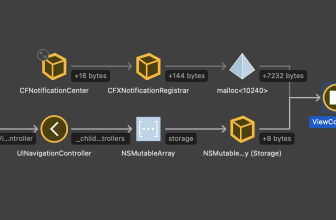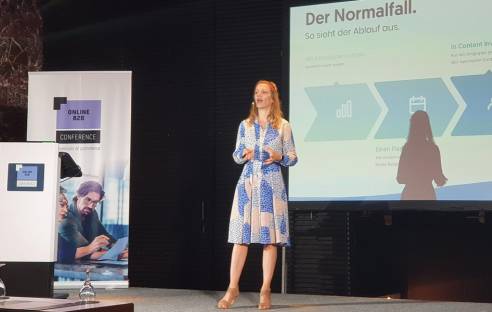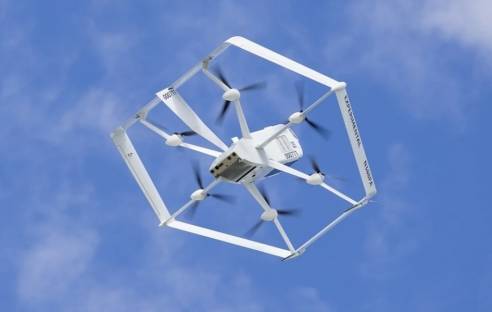While politicians are still philosophizing about the possibilities of artificial intelligence in the healthcare sector, the reality has already moved on. In medicine and nursing, AI is already showing its potential today. […]
According to the German Federal Ministry of Health, artificial intelligence “can improve the care of patients…, can help doctors to make a diagnosis faster… In addition, artificial intelligence can be used to tailor therapies more individually to patients.” But modern medicine – keyword e-health – is already well beyond the stage of “skill”. For example, data-powered algorithms are being used in more and more devices and health solutions and are being used more and more frequently.
The AI systems help doctors and nurses not only with administrative and organizational tasks. Rather, they have long been supporting you in prevention, diagnosis and therapy. The examples range from cancer detection, ventilation for lung diseases to the development of drugs and vaccines, such as currently in the corona crisis. Algorithms and data not only help to make better diagnoses, but also ensure that caregivers can focus on their emotional and human strengths in the long term.
For PwC analysts, artificial intelligence is therefore already “the key technology of the future – especially in the field of health”. It not only helps to detect diseases and provide care for people, but also relieves the health systems in Europe alone of a three-digit billion amount over the next ten years. In their assessment, the analysts agree with many decision-makers from the healthcare sector, according to the result of a PwC study: 64 percent of the respondents already recognize the power of AI to change, even if only 30 percent have taken concrete steps to do so.
As always, the use of AI in healthcare depends on the availability and usability of data. Winning them is both a technological and regulatory challenge. AI is already part of the solution for technological work: for example, the Bielefeld startup Semalytix is working on collecting health data from social networks, forums and other online sources via the self-developed platform “Pharos” in order to discover previously unknown disease courses and better understand side effects. The young company is taking a rather unusual approach. It does not collect any patient data, but uses algorithms to evaluate texts written by the patients themselves for its collection.
Data always plays a decisive role in the use of AI, because it is the basis for the training of algorithms and for valid analyses and decision-making aids. The devices for collecting this data, even beyond special medical devices, are now so widespread that this can be done almost incidentally and without additional effort. After all, smartphones, smartwatches or fitness trackers are equipped with cameras and sensors. As a rule, they have a permanent Internet connection and are therefore perfect for data collection. Many apps use this for prevention, diagnosis and therapy – and many users already use it today to support their personal fitness.
Smart devices measure steps and climbed steps, can document pulse and blood pressure or carry out analyses of posture and musculoskeletal system via the built-in camera. From all these data, tips for prevention or therapies can be derived. If you look at the keynotes of the big technology companies, you will see that Apple, Microsoft, SAP or Google all give the field of data, AI and health a special role in their products.
If you like, you can also manually entrust your smartphone with data to tell apps about your sleeping, drinking and eating habits, but also body temperature, pain sensation, sexual behavior or cycle values. Then the mobile applications can give tips on ovulation, proper nutrition or an individual fitness or yoga program. Fitness 2.0, so to speak, are apps that not only give advice, but – with the help of AI – enable real-time feedback in 3D via smart motion tracking.
The interaction of personal data collected automatically and manually and processed on the providers’ servers is not without problems, especially in the health sector. If such data falls into the wrong hands, this violates the private and intimate sphere of users in a particularly sensitive area and, of course, all legal regulations for the protection of such data.
This is not only a superficial legal problem, but can have fatal consequences for the acceptance and thus the benefit of such applications. Apart from the technical requirements for the protection of such data, every provider should therefore have a generic interest in storing data securely and using it exclusively with the consent of the users and within the framework of legal regulations, for example the European Data Protection Regulation DSGVO. Only on the basis of these high standards is it possible in the end to put the patient benefit above data protection.
Artificial intelligence creates the conditions for individualized, patient-centered and prevention-oriented health care. It helps to turn a reactive medicine into a preventive medicine. But preventive medicine is synonymous with freedom, independence and self-determination for a society in which people are getting older and older. AI as part of the digital transformation can also make a contribution to relieving the burden on nurses, for example, because the complex documentation in diagnosis and therapy can be made much more efficient in continuous digital chains. This creates new and valuable freedom for the actual therapies.
*Diana Heinrichs is CEO and Founder of Lindera. Together with her team, she develops AI-based 3D motion analyses for health and fitness applications.














